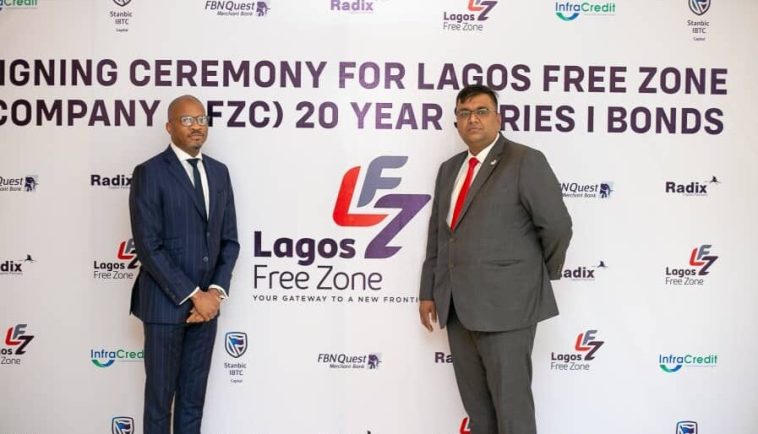Lagos Free Zone Company plans to seek new financing early next year after raising 10.5bn naira ($25m) in a bond sale this month, CFO Ashish Khemka tells The Africa Report.
The amount sought next year will depend on market conditions. The current plan is to raise between 20bn and 30bn naira from local and international investors, Khemka says. The sale will be part of a debt-raising programme intended to fetch 50bn naira.
Lagos Free Zone, which involves the development of about 740 hectares of land over the next 15 years, is being developed as the largest, integrated, port-based, economic zone in Nigeria. The Lagos Free Zone Company is a member of the Singapore-based Tolaram Group. The project includes a deep-water port, and companies operating in the zone are cereal maker Kellogg’s as well as milk producer Arla.
The bond in this month’s oversubscribed sale was priced at a 13.25% coupon and has an unconditional guarantee from InfraCredit, as well as ‘AAA’ long-term credit rating from Agusto & Co. and GCR. Investors include domestic pension funds, insurance firms and banks.
The operation, which was fully subscribed by local investors, has served to ‘democratise’ the zone’s investor base, Khemka says. The sale has “boosted our confidence and that of Tolaram” in the zone’s development, he says.
- The port is now 63% complete and Khemka expects construction to be concluded in September 2022 with commissioning around the end of next year.
- Lekki Freeport Terminal, a subsidiary of CGM/CMA, will operate a container terminal once the port is ready.
- The money raised will be used to refinance a shareholder loan from Tolaram, and for future equity projects such as power plants and commercial towers, he says.
- Tolaram has invested about $350m to $400m in equity in the project to date, while debt stands at about $50m; so the fundraising means a more efficient debt-to-equity ratio, Khemka says.
Roads, piracy
The ease of using Nigerian ports has however been held back by the country’s poor road network. The country has the lowest road-to-population ratio in Africa, and the ratio is getting worse as population increases.
- Nigeria’s population has more than doubled from 95 million in 1990, while the total road network increased by only about 60% to 194,000 km in 2017.
- “The success of the project depends on road connectivity to the area,” Khemka says.
- Both the state and federal governments are making roads an “absolute priority” given their economic importance, he says. Khemka is confident that all critical roads will be completed by the end of 2022.
Fears of piracy will be a further hurdle that users of the port will have to overcome. The Gulf of Guinea has become one of the world’s piracy hotspots, with many of the pirates operating from Nigeria with more sophisticated weaponry. The first ever conviction for piracy, by a Nigerian court, only took place in 2020.
- The Lagos Free Zone Company has been in talks with government agencies over the issue. Khemka says he is “confident” that security concerns can be overcome.
Bottom line
Concerted government backing on road and maritime security will be needed for Lagos Free Zone to fulfil its potential.
Understand Africa’s tomorrow… today
We believe that Africa is poorly represented, and badly under-estimated. Beyond the vast opportunity manifest in African markets, we highlight people who make a difference; leaders turning the tide, youth driving change, and an indefatigable business community. That is what we believe will change the continent, and that is what we report on. With hard-hitting investigations, innovative analysis and deep dives into countries and sectors, The Africa Report delivers the insight you need.
View subscription options


